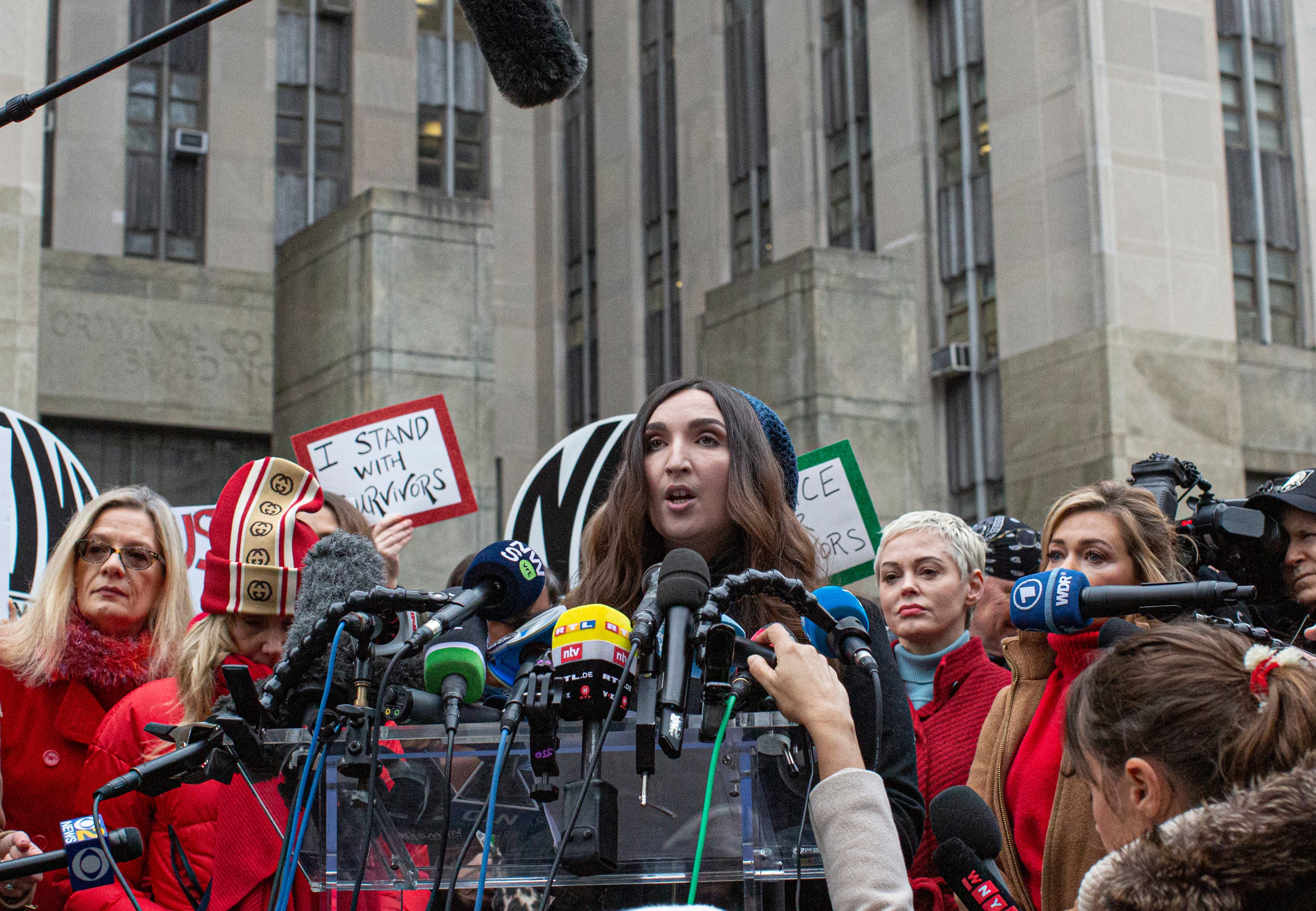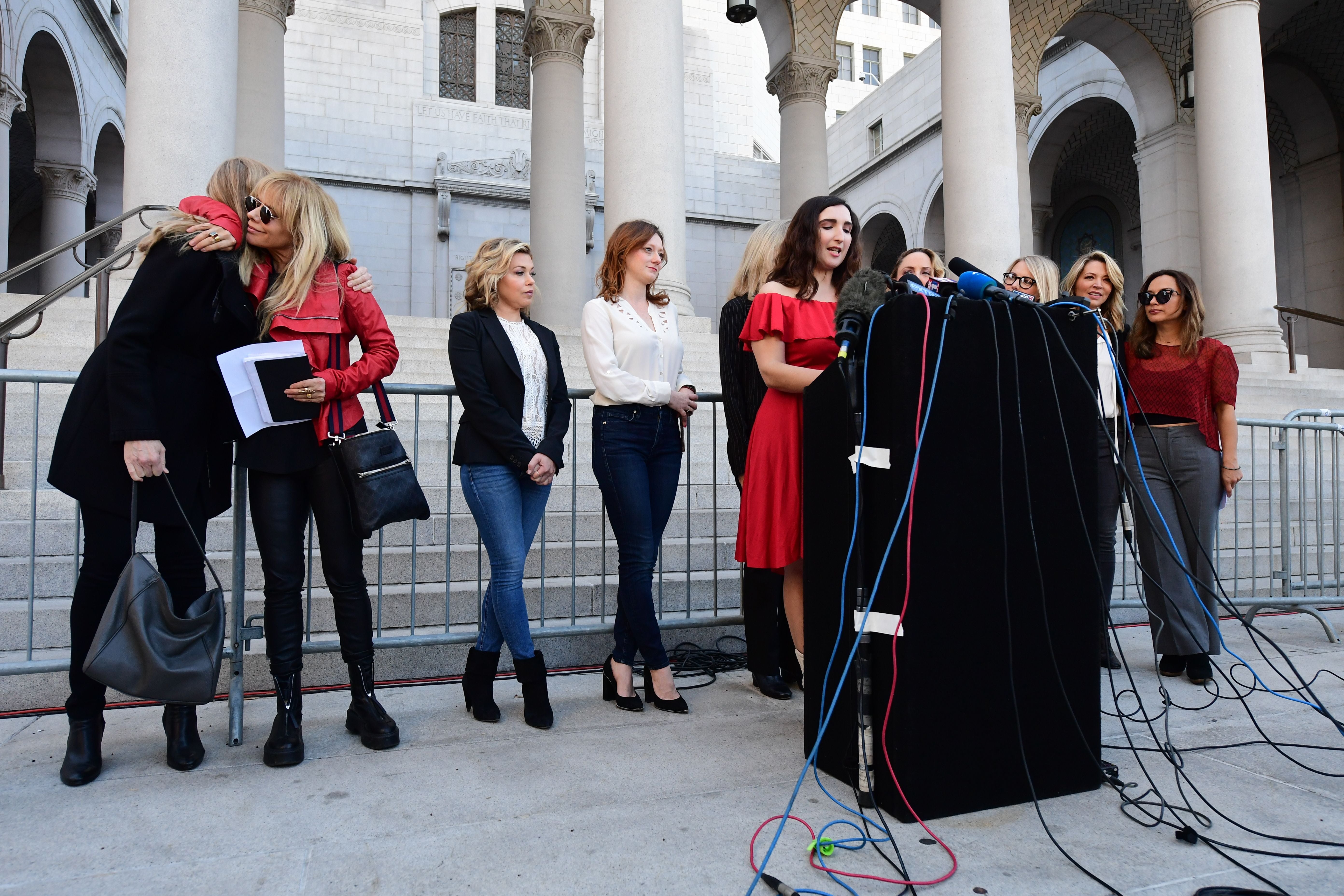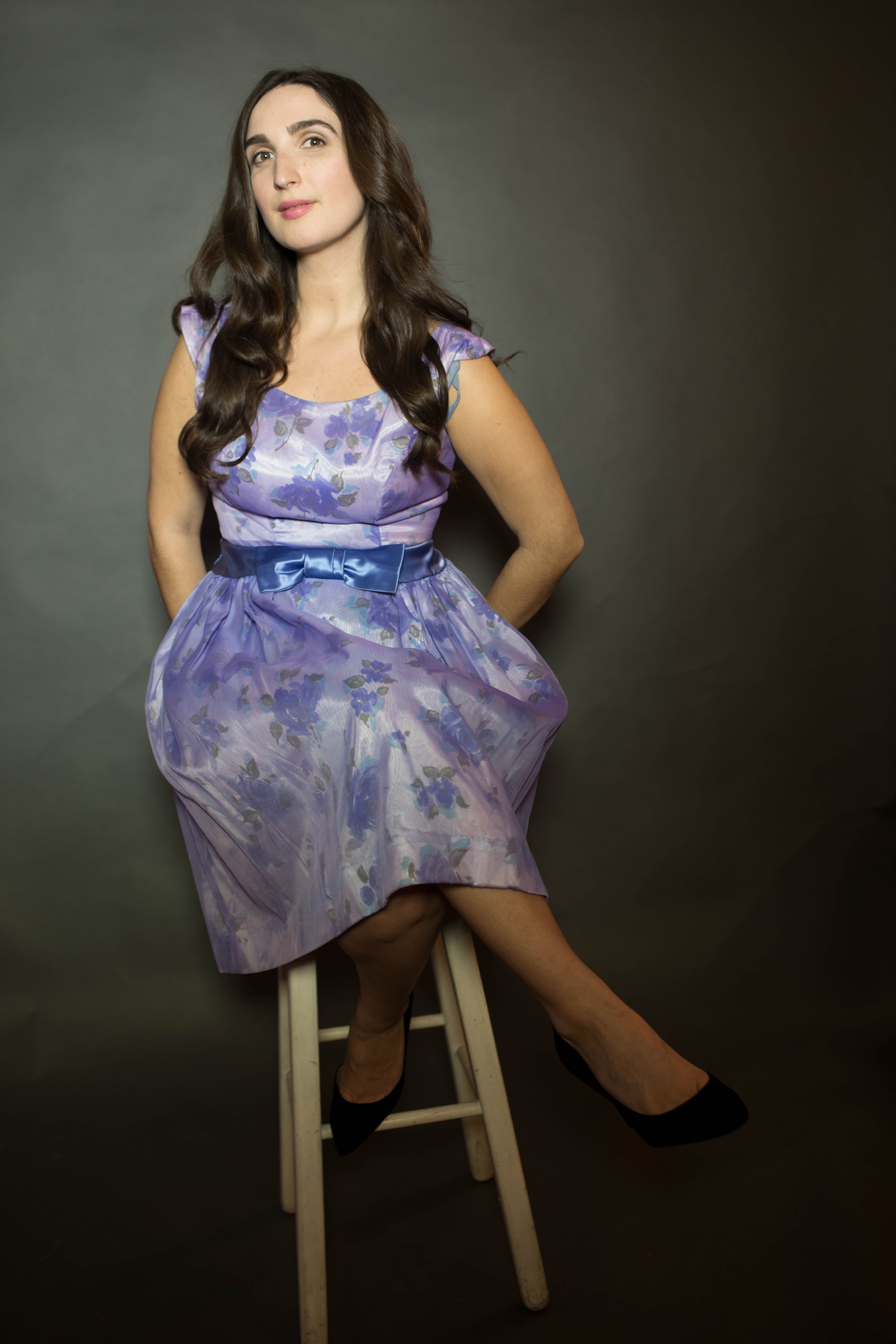She spoke out against Harvey Weinstein and was blacklisted. Now, she’s making Hollywood safer for survivors
Sarah Ann Masse was among the women who came forward against Weinstein in October 2017. She speaks to Clémence Michallon about her organization, Hire Survivors Hollywood, and why ‘it’s not over because Harvey is in prison’


Your support helps us to tell the story
From reproductive rights to climate change to Big Tech, The Independent is on the ground when the story is developing. Whether it's investigating the financials of Elon Musk's pro-Trump PAC or producing our latest documentary, 'The A Word', which shines a light on the American women fighting for reproductive rights, we know how important it is to parse out the facts from the messaging.
At such a critical moment in US history, we need reporters on the ground. Your donation allows us to keep sending journalists to speak to both sides of the story.
The Independent is trusted by Americans across the entire political spectrum. And unlike many other quality news outlets, we choose not to lock Americans out of our reporting and analysis with paywalls. We believe quality journalism should be available to everyone, paid for by those who can afford it.
Your support makes all the difference.Sarah Ann Masse used to go on four auditions a month. She had just moved to Los Angeles to grow her acting career, and she expected that number to increase soon enough. Then, in October 2017, as allegations of sexual harassment against Harvey Weinstein were made public, Masse shared her own story of being sexually harassed and assaulted by the producer during a job interview.
“From that point forward, everything dried up,” she recalls. “I think I’ve had maybe half a dozen auditions over the past four years since that happened.”
Masse has said a nanny agency referred her in 2008 to apply for a job looking after Weinstein’s three children from his first marriage. She didn’t make a secret of her acting career; it was mentioned on her resume. Weinstein, she says, asked her whether she’d flirt with his friends to get ahead. She says he conducted the interview wearing boxer shorts and an undershirt, and ultimately hugged her while in his underwear.
After Masse shared her story with Variety, she says she got a phone call from her agent informing her she was being blacklisted. Some casting directors, she says, were angry that she was speaking out about what had happened to her, and about abusive practices in the industry at large. “I was shocked and surprised. It felt like it was almost laughable that this was happening,” she says. “And I instantly knew I was going to do the opposite of what was being asked of me. I knew I was not going to stop talking about it.”
Masse got even more vocal. She went to several existing organizations looking to partner on a program designed to fight back against retaliation. “Everybody was like, ‘Yeah, this is a great idea, but we don’t have the time or money or resources, so you should just do it on your own,’” she recounts. “And I thought, well, I don’t have the time or money or resources, but I guess I’ll do it on my own.”

She created Hire Survivors Hollywood, an initiative which aims to end retaliation against survivors of sexual violence in the entertainment industry, and to make the industry safer for them. The organization launched formally in February 2020, when Masse spoke on a panel at the Athena Film Festival with three other survivors. Since then, it’s worked both on a general and ad hoc basis, sharing resources, employment opportunities for survivors, and consulting on specific projects. When brought in on a project, Hire Survivors Hollywood may help coordinate casting (for example if someone is looking to proactively hire survivors of sexual violence) or may pair a writer with a co-writer or a consulting writer to work on a script about surviving sexual violence. It will also publish guidelines for industry stakeholders later in the year.
Having experienced sexual violence is a barrier to entry, Masse says, and the organization is here to help remove that barrier and allow survivors to have a fair chance at a job. Even before she came forward about Weinstein, she says, her career had stalled once before due to his behavior.
“I pulled myself back [after the incident],” she says. “I pushed pause on a lot of elements of my career. I had just moved to New York [at the time] and I was trying to get into film and TV from theater. And I stopped, really. I stopped looking for an agent. I stopped going to auditions, and I just kept working with my own theater company and people I knew and trusted because I didn’t want to find myself in that situation again.”
This is a hidden toll of sexual violence, and it comes on top of more overt retaliation. Once someone has been made to feel unsafe in a professional environment, they won’t feel comfortable pursuing further opportunities. Their world will shrink. Their careers will slow. Hire Survivors Hollywood is trying to right the balance, making it easier for survivors to go after jobs in an environment they can expect to be safe.

By the time she spoke out against Weinstein, Masse had managed to make some progress in her career despite those circumstances – only to be stalled once more once she went public with her story.
“Economic damage to survivors is a really big part of what we go through,” she says. “It’s something people don’t like to talk about or don’t really understand, but there’s long-lasting economic harm that comes from being a survivor of sexual violence, or a survivor of any kind of abuse. So removing those barriers to having a job, having a living, doing what you’ve trained for is our ultimate goal. And ensuring that our industry doesn’t continue to promote and celebrate and hire the people who have done the abuse in the first place.”
Because she has experienced firsthand the cost of coming forward, Masse says she will never hold it against survivors who don’t feel comfortable or ready to do the same. “It’s so hard,” she says. “We’ve already dealt with so much trauma and so much loss that putting yourself constantly on the line is really exhausting, and it can be dangerous.”
But she felt the need to share her own experience due to the specificities of her experience with Weinstein: “I was meeting him as sort of a domestic role,” she says. “I was going to be his nanny and he knew I was also an actor. And I feel like he used those two positions of power that he held over me to really isolate me and harm me and the way he did.” When actors started sharing their stories about Weinstein, Masse felt that it was important for people to know that the allegations extended to people in non-acting jobs too.
“There are a lot of domestic workers who are abused, and there wasn’t a lot of focus on that, so I wanted to draw attention to that,” she says. “I wanted to let people know that they weren’t alone. But I also wanted to let the women who came forward first know that it mattered that they did it, and that there were other people willing to share their stories.” She figured there would be safety and power in numbers. She thought if enough people came forward, there would be a “protection by scale for all of us”.

Hire Survivors Hollywood has created a pledge for stakeholders in the entertainment industry; by taking it, they can signal to survivors that they’re committed to making their professional environment safer and more equitable. Masse hopes more productions will do so in the future, “ideally across all departments, but at least in one department to start taking action.”
Industry standards are changing. On the subject of on-set safety, the need for intimacy coordinators, who help manage scenes involving nudity and simulated sex, has become more widely acknowledged. (A few days after Masse and I speak, SAG-AFTRA, the largest unions for performer, accredits seven intimacy-coordinator training programs in an effort to expand the pool of coordinators available to work on productions.)
“For the projects I’ve worked on that have had intimacy coordinators, I know that the actors have felt so much safer,” Masse says. “But more than that, it creates an easier environment to be creative. The actors feel like they know where the boundaries are, so within that, they can play and they can be creative. If something feels off, they know exactly who to go to and exactly how to get the situation taken care of.”
Not only does it make for a better end product, Masse says, but keeping a set safe is sound all around. “That’s one thing I try to talk about with stakeholders, producers, heads of networks, or whomever I’m talking to – that from a financial standpoint, it’s really beneficial to hire intimacy coordinators, to hire survivors, to not hire people who have been accused of abusing people or are known to abuse people,” she says. “It creates less liability for them, less opportunity for bad PR, less opportunity for lawsuits. It creates a safer environment for them as people who are investing in this end product as well.” These incentives, Masse acknowledges, shouldn’t even be needed, but “people think about the bottom line.”
In the aftermath of Weinstein’s trial (he was convicted of rape in the third degree and a criminal sexual act in the first degree, and sentenced to 23 years in prison in March 2020), Masse has felt “gratified” by the guilty verdict.
“I have a lot of complicated feelings about the carceral system and the prison industrial complex, and I think there is a better version of justice to be had,” she says. “But within the guidelines that we’re working with, knowing that he’s actually serving time and being held accountable for the crimes he committed – it does feel like a form of justice. It does feel like an ability to seek some form of closure. … Knowing that these women were heard and believed by the jury and the judge is really important and was not at all guaranteed.”
Survivors of sexual violence, she says, never signed up to be brave – the industry just keeps demanding they be so. “I want people to understand this is a thing that’s still happening,” she says. “It’s not over because the Me Too movement happened. It’s not over because Harvey is in prison. It’s still going on. There are still abusers in our industry. The people who came forward years ago are still paying the cost, and there are new people every day who are dealing with this kind of abuse and harassment. We need to protect them, and we need to uplift them. We need to make sure they have a fair shot in this industry, which is already so hard. We don’t need to be putting in new barriers for an industry that’s already extremely difficult to thrive in.”


